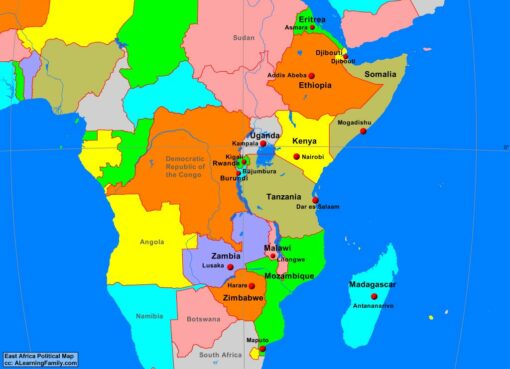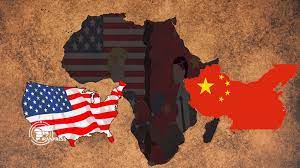Major events that were trending last week in East Africa include Ebola vaccines, prospects of civilian rule returning in Sudan, improving relations between Tanzania and Kenya, and Egypt trying to lure Chinese phone companies fleeing from India.
Ebola Outbreak and Indian Vaccines
As African countries are confronted with another deadly Ebola viral outbreak, India’s pharmaceutical companies, which have earlier supplied vaccines against the Covid-19 pandemic, are again taking lead to distribute vaccines to deal with the new medical emergency. The Serum Institute of India (SII) plans to manufacture 20,000 – 30,000 doses of an experimental Ebola vaccine by the end of November for use in trials in Uganda. The vaccine produced by the Oxford University has shown to induce an immune response to both Sudan and Zaire strains of Ebola in Phase 1 trials. SEI would be distributing vaccines free of cost.
Why It is significant. SII, the world’s biggest producer of vaccines, is proposing to set up its first manufacturing plant in Africa as it looks to expand globally. Covid-19 pandemic demonstrated how helpless Africa was as it was the only continent that did not have its own manufacturing capacity and global suppliers were prioritizing their own countries.
New Proposals for Return of Civilian Rule in Sudan
New proposals have come to the fore in Sudan to revive civilian-led authority as current military rulers have reportedly indicated their willingness to hand over power. A military coup last year ended a power-sharing partnership between the armed forces and the Forces of Freedom and Change (FFC) coalition, derailing a transition to democratic elections and plunged the country into political and economic turmoil. The FFC presented its vision on October 17 for a fully civilian-led authority to lead a transition to elections. The draft constitution circulated by the Sudanese Bar Association appears to have the approval of the military leadership. The proposals include a civilian controlled Sudan’s Sovereign Council and a transitional parliament of all parties and groups excluding those earlier aligned with former President Omar al Bashir’s National Congress Party (NCP).
New Gas Pipelines between Tanzania and Kenya
Tanzania and Kenya have resolved most of their bilateral disputes and are marching ahead with new areas of cooperation. The visiting Kenyan President William Ruto and his Tanzanian counterpart Samia Hassan held wide ranging talks in Dar es Salaam on October 10. The main outcome is an agreement to fast-track construction of a natural gas pipeline linking Dar es Salaam to the Kenyan coastal city of Mombasa and on to the capital Nairobi. This is aimed at increasing trade and lower energy costs for both the countries. Hasan visited Nairobi last year to meet Ruto’s predecessor Kenyatta and the two sorted out most of the trade disputes that plagued bilateral relations for a long time.
Fighting continues to rage in northern Ethiopia as Peace efforts prove ineffective
As fighting continued to rage in the northern Tigray region of Ethiopia, government forces have seized three important towns. The loss of the strategic city of Shire, with its airport and road links to the regional capital, is a significant blow to the forces of the Tigray People’s Liberation Front (TPLF). Alamata and Korem are other towns to fall. Most of Tigray has been under a virtual blockage by the federal government since last year. Regional and international efforts to end the conflict have so far had no impact. The proposed peace talks mediated by the African Union (AU) last week could not take place due to inadequate preparations. UN Secretary General Antonio Guterres reiterated on October 17 a call for an end to hostilities and resume peace talks. The AU had pledged in 2016 to “silence the guns” and put an end to all conflicts across the continent by 2020. The Tigray war, now about to drag into the third year, has proven its ineffectiveness to resolve regional conflicts.
Egypt is trying to lure Chinese Phone companies fleeing India
Egypt is trying to attract Chinese mobile companies fleeing India where they were increasingly under scrutiny for tax violations. A MoU was signed last month with Oppo for establishing a mobile phone factory in Egypt. A new Vivo factory was already opened. Cairo is extending incentives such as tax exemptions, provision of factory space etc. Egypt has also kicked off a pilot project for teaching Mandarin Chinese in Egyptian schools. Faced with increased criticism and aid cuts from the U.S., Cairo is looking more toward China and fellow Arab sheikhdoms for investments. The volume of Chinese direct investments in Egypt until the first half of 2022 exceeded nearly $1.5 billion. Saudi Arabia, Qatar and the United Arab Emirates have pledged more than $22 billion this year to Egypt as the country seeks to stave off default.




